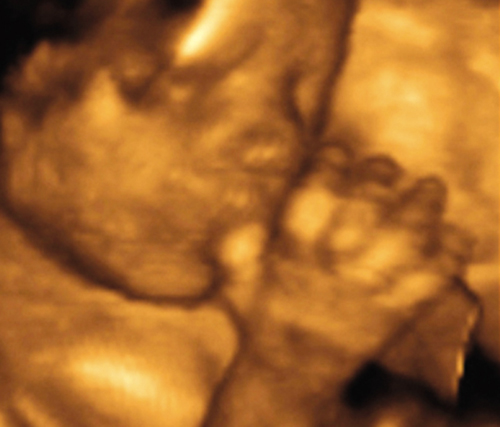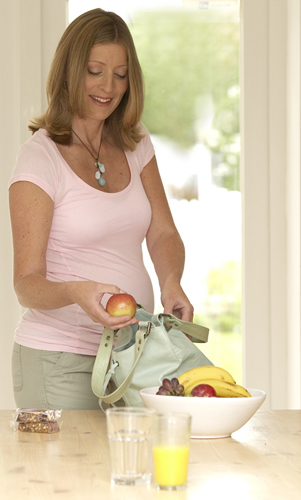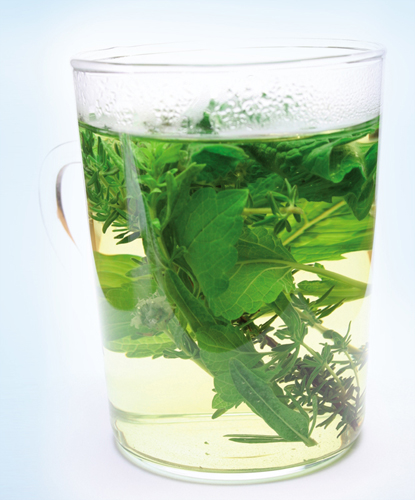You are 24 Weeks and 4 Days 108 days to go…
A natural temperature-regulating mechanism within the uterus means your baby never gets cold.
Your baby today
This 3D scan shows the baby thumb sucking. The 3D technique uses
several routine 2D images, linked together to give the 3D effect. In a
4D scan, a series of 3D images are shown in quick succession to give
almost real-time movements: the 4th dimension is time.

The temperature inside the uterus
is between a third and half a degree higher than yours. Because your
body temperature is so closely controlled, your baby never becomes cold
so never needs to shiver. He has started to lay down a special form of
brown fat, particularly around the neck, chest, and back. After birth,
metabolism of this fat produces both energy and heat. In the uterus,
however, the baby cannot use this fat to raise his temperature. Some
temperature control occurs as heat is lost from the baby’s skin into the
amniotic fluid through the uterine wall and then into your body
tissues. However, the regulation of temperature is predominantly
achieved by means of the blood flow to the placenta. The large surface
area of the placenta allows it to act as a heat exchange, keeping the
temperature of the blood leaving the baby in the umbilical arteries
constant with that of the oxygenated blood returning to the baby through
the umbilical vein.
After birth, babies
lose heat quickly. They are still unable to shiver and cannot maintain
their temperature, cooling rapidly if they’re not wrapped up warmly or
held skin-to-skin shortly after the birth.
Sensible snacking
In addition to eating three meals a day,
you may find you need to snack throughout the day, too. There’s nothing
wrong with that as long as you’re choosing the right foods, and not
reaching for the cookies and chips all the time. These tempting foods
might satisfy a hunger pang, but the lack of nutrients and empty
calories won’t serve you any real purpose. Healthy snacking can be
accomplished with a bit of planning before you go shopping:
Dried fruits
should be a mainstay of your snacking, since they can easily be stored
and carried. Enjoy a wide variety of dried fruits, since the more
variety you consume, the more likely you are to obtain the nutrients you
need. Try dried apricots, raisins, cranberries, cherries, and peaches.
Lightly salted mixed nuts will satisfy any salt craving you may have in a healthy way.
Opt for pretzels, oatcakes, or crackers, rather than potato chips.
Fresh fruit
is a convenient and nutrient-rich snack; always carry one or two pieces
with you when you’re out and about, and make fruit salads that you can
keep in the fridge. Keep frozen fruit on hand, and along with some
vanilla yogurt, you can whip up a smoothie in no time at all.
Frozen yogurt and low-fat ice cream both make good snacks and desserts. Stock up on a variety of low-fat yogurt brands.
Always take a healthy snack with you when you leave the house.

You are 24 Weeks and 5 Days 107 days to go…
Some meals may be followed by an uncomfortable bout of indigestion, but you can take steps to prevent and relieve this.
Your baby today
Here the skin looks almost loose around the neck as the baby has
turned his head slightly. This is normal at this stage: the lack of fat
beneath the skin and the need to grow rapidly can make your baby appear
as if he needs time to “grow into” his own skin.

While you may be enjoying your food,
you could be paying the price with indigestion. The pregnancy hormone
progesterone relaxes the muscles in the entire digestive tract. This
slows digestion and the sphincters, or rings of muscles, at each end of
the stomach become less effective. This can cause heartburn and
indigestion as acidic juices from the stomach leak back into the
esophagus. In addition, as your pregnancy progresses, your growing baby
is squashing your stomach so that you have a smaller space to digest
food.
To relieve
indigestion, eat little and often, eat slowly, don’t eat late at night,
and cut down on fatty or spicy foods. Make sure to talk to your doctor
about any natural remedies, including peppermint teaπ. Rather than lie
flat, prop yourself up with pillows. Check with your pharmacist before
taking over-the-counter medicine.
Natural remedies might seem harmless, but taking any herbal preparation, even peppermint tea, should be discussed with your doctor.

Think about gas
| Q: |
I seem to be gassier than usual lately. Is the pregnancy to blame?
|
| A: |
Yes, pregnancy slows down your digestive tract, which can lead
to unpleasant burping, bloating, passing gas, and an uncomfortable
feeling in the stomach. Symptoms can be worse after you eat a large
meal. To minimize problems:
Steer clear of foods that make you gassy.
For many women, this may include cabbage, beans, and other foods rich
in fiber. Some women have trouble with large amounts of dairy products. Eat smaller meals more frequently rather than a couple of large meals. Avoid swallowing air.
This means you shouldn’t hurry when you eat, you should chew every
mouthful thoroughly, and you should avoid drinking through straws. Also,
skip carbonated beverages and chewing gum. Reduce your intake of fatty, fried foods which can contribute to bloating and discomfort. Don’t take any OTC indigestion remedies without first checking with your doctor.
|
… Dads
Arranging paternity leave
Although it’s much less common than paid maternity leave, you may be entitled to paternity leave and pay .
Speak to your human resources department now to find out your rights
and whether your company offers additional perks. To maximize the time
you can take off once the baby is born, figure out how much vacation you
have left and consider saving up days. You may also qualify for FMLA
leave, but this is unpaid.